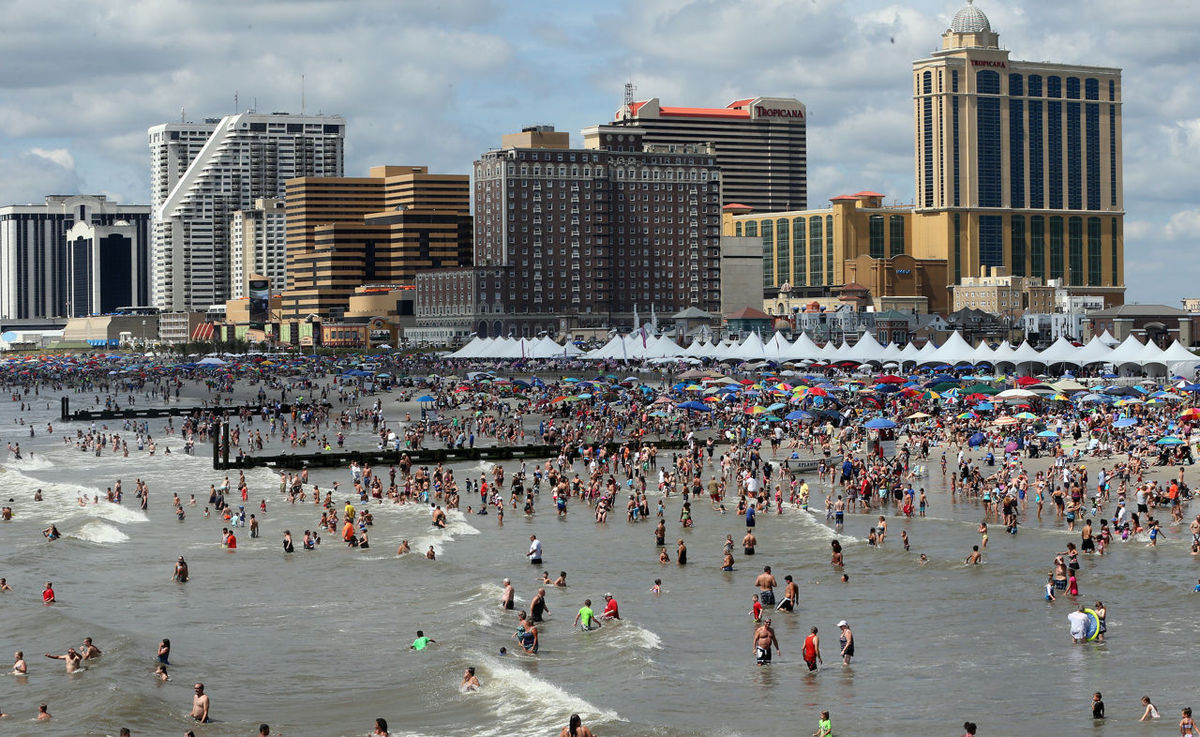Atlantic City Casino Revenue November 2018
Atlantic City’s casinos, the three horse tracks that offer sports betting, and the state’s robust internet gambling industry saw nearly $289 million in revenue in November, a figure that does not. The Hard Rock Atlantic City's combined gaming revenue (casino and internet) was a little more than $24.2 million in October, while the Ocean Resort Casino's was just over $14.5 million. Total gaming revenue amounted to $239.1 million last month, up 15.8% year-on-year. Revenue generated by Atlantic City’s nine operational casinos totaled $200.6 million for the month of October, reflecting an increase of 8%. Internet gambling revenue stood at $26.8 million, up 30.1%. Revenue from sports betting was $11.7 million. Revenue was up at Atlantic City casinos on the heels of the opening of two new hotels, though the average earnings per casino saw a decline. Total Gaming Revenue. July 2018: $76,618,371.
Atlantic City is considered a gambling destination within the United States, even if it doesn’t share the same elite status as international gambling hubs such as Las Vegas and Macau. There are many who counted the city out several years ago, and many residents were angered by the fact that Atlantic City focused so much on gambling, calling it fiscally irresponsible.
The city certainly appears to be undergoing a revival, as two reopened casinos and sports betting helped bring in over $2 billion in 2018. This marks a significant uptick in revenue, as the figure was over 7% higher than 2017 revenues.
Reopened Casinos
One of the major factors in the increased revenues is the fact that two high-profile casinos reopened. In 2014, five of Atlantic City’s twelve casinos closed, and many believed that it was essentially over for the city’s quest to become the “Las Vegas” of the East Coast. Trump Taj Mahal, which carries the name of the current president of the United States, was sold for “pennies on the dollar”, and reopened as Hard Rock Hotel and Casino.
Revel Casino, which even received funding from internationally-known investment bank Morgan Stanley, ultimately failed as well. It reopened last year as Ocean Resort, after Revel filed for bankruptcy in 2013.
Cautious Optimism
The fact that the two casinos reopened was praised by many media outlets as a sign that there was still life with regards to a gambling sector. It marked an opportunity for more local jobs and tax revenue, but some were concerned, considering the history of the city with regards to casinos closing.
The chairman of the New Jersey Casino Control Commission pointed out that the market will change in the new year. He stated:
While the city had a good year, market adjustments from competition occurred and will continue into 2019. The continuing strength of internet gaming plus a growing sports wagering market will provide the industry with tools to compete.”
Neil Mathew has been writing about technology and business for years now, and is interested in how emerging technologies will affect the gambling/casino sector.
The New Jersey Division of Gambling Enforcement released the Q4 2018 report on Monday, and there is plenty of data to sift through.
Unlike the monthly reports that focus on gross gaming revenue, the quarterly reports provide a more nuanced view of the Atlantic Citycasino market.
Revenue, operating profits, hotel occupancy, and room rates are just some of the data laid bare in the reporting. And because it provides a year-end synopsis, the fourth quarter report is the most anticipated.
Here’s what the latest report tells us about the Atlantic City casino market.
Revenue and profits go in opposite directions
When it comes to revenue and operating profits, 2018 was a mixed bag for Atlantic City casinos.
The market saw net revenue grow from $2.7 billion in 2017 to $2.9 billion in 2018. That’s an increase of 7.5%.
At the same time, gross operating profits decreased by 15.4% in 2018. AC casinos pocketed $688.6 million in gross operating profits in 2017, but only $582.6 million in 2018.
Neither of those results is overly surprising considering the market gained two new casinos — Hard Rock and Ocean Resort (now called Ocean Casino) — in late-June.
But not every casino experienced a decline:
- Bally’s AC: -5.7%
- Borgata: -18.8%
- Caesars: -15.4%
- Golden Nugget: 12.5%
- Hard Rock: N/A
- Harrah’s: -6.5%
- Ocean Resort: N/A
- Resorts Casino: -2.7%
- Tropicana: 1.4%

It appears Hard Rock and Ocean (larger, swankier properties) are poaching some of Borgata’s higher-end customers.
More hotel rooms cause occupancy rate to fall
Things were just like Jekyll and Hyde on the hotel side.
With the addition of the two new casinos, room inventory increased by 25%. The 15,000 rooms were the most in the market since 2014.
A lot of those rooms went unoccupied. Occupancy rates decreased by 6.2%. But, as seen in the chart below, 2017 was a severe outlier on that front, so 2018 occupancy is in line with other years.
What might be a little surprising is the lower occupancy rate didn’t have a negative effect on room rates.
Casinos benefit from higher room rates
The average price of a room at Atlantic City casinos ballooned from $108.35 to $137.03 year-over-year.
Atlantic City Casino Revenue November 2018 Events
So what does that tell us?
Atlantic City Casino Revenue November 2019
On average, the number of occupied rooms in Atlantic City was at its highest level since 2014:
- 2014: 14,303
- 2015: 10,873
- 2016: 11,038
- 2017: 9,819
- 2018: 12,234
And since the average room rate increased by more than 30%, the average daily haul from hotel rooms rose by 35% Y/Y.
- 2014: $1.442 million
- 2015: $1.117 million
- 2016: $1.166 million
- 2017: $1.063 million
- 2018: $1.676 million